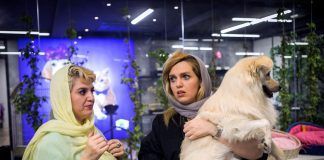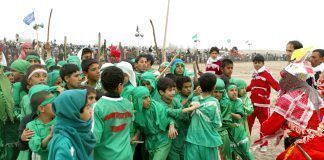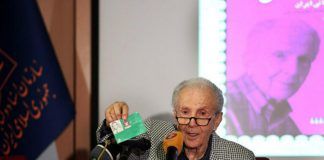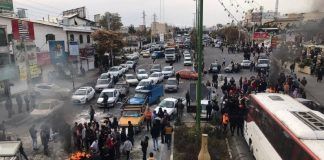Passengers on all Iranian airlines must wear facemasks, and may otherwise be prevented from boarding aircraft, according to Reza Jaffarzadeh, the Spokesman for Iran Civil Aviation Organization.
In comments reported by the Young Journalists Club (YJC) news agency, Mr. Jaffarzadeh said: “We have issued a directive to all Iranian airlines to stop passengers who do not wear a facemask from boarding flights.”
“Under the current health and hygiene guidelines, designed to prevent or minimize the risk of spreading coronavirus, we have directed all airlines to provide hygiene products kits to all flight and cabin crews and passengers that should include masks, gloves, and hand sanitizing gel,” Jaffarzadeh explained. “Cabin crews must make sure that all passengers are wearing masks while inside the plane.”
Jaffarzadeh’s announcement comes a few days after many people complained about the relaxing of social-distancing rules at airport terminals and inside planes, as part of the government’s effort to ease the COVID-19 lockdown across the country.
According to some sources, social distancing is only practiced on flights with few passengers.
Speaking to YJC two days earlier, Jaffarzadeh said: “All passengers go through a comprehensive health check and screening process at Imam Khomeini International Airport. They also have to complete a [coronavirus] ‘self-declaration’ form.”
“Any passenger showing symptoms of coronavirus is referred to a doctor and placed in quarantine,” Jaffarzadeh noted. “We exercise the same screening protocol at Tehran’s Mehrabad Airport and use thermometer guns to measure passengers’ temperatures.”
According to the Ministry of Health and Medical Sciences’ Special Coronavirus Monitoring Units at Imam Khomeini Airports, all administrative offices, taxis, transport services for airport employees, and arrival and departure terminals are disinfected regularly.
The medical units examine passengers upon arrival and walk them through a sanitizing machine that sprays them with a disinfectant agent. Workers also spray all the luggage with a disinfecting agent as they roll onto the luggage belts.
In an interview with YJC earlier in April, Maghsoud Asadi Samani, the secretary of the Association of Iranian Airlines, said: “Passengers may have to pay higher airfares to compensate the airlines for extra expenses they have incurred for boosting safety measures on planes, given the likelihood that the volume of travel could increase while we are still practicing social-distancing.”
“The insides of airport terminals and planes are disinfected thoroughly every day,” Samani explained. “Airlines are providing masks to all passengers. People automatically observe social distancing during the flight.”
“Iranian airlines have lost nearly $714 million in booking cancellations since the coronavirus outbreak,” Mr. Samani noted. “The Ministry of Roads and Urban Development has earmarked $570 million to help the airlines, but it is not yet clear when it will pay the money out.”
According to YJC, the Minister of Roads and Urban Development, Mohammad Eslami, had previously said: “The only way to maintain social distancing on a plane is by selling only 60 percent of the seats on a flight.”
Meanwhile, most domestic flights during weekends are full. These safety measures must be put in place as soon as possible to avoid a health problem, but so far, nothing has happened, YJC’s report added.
Meanwhile, Mahan Air, with alleged links to the Islamic Revolutionary Guards Corps (IRGC), sent a memo on May 2 to all sales agents, directing them not to drop airfare prices below the minimum set amount.
“The Civil Aviation Organization and the Association of Iranian Airlines have agreed on a minimum airfare for domestic flights,” the memo said. “Therefore, all ticket agents must not offer any airfare for Mahan flights below the minimum price.”
Mahan Air has allegedly been the principal culprit in spreading coronavirus in Iran because it flew many round-trip flights every day to several Chinese cities, while that country was in the throes of an epidemic.
This article was translated and adapted from Persian by Fardine Hamidi.





